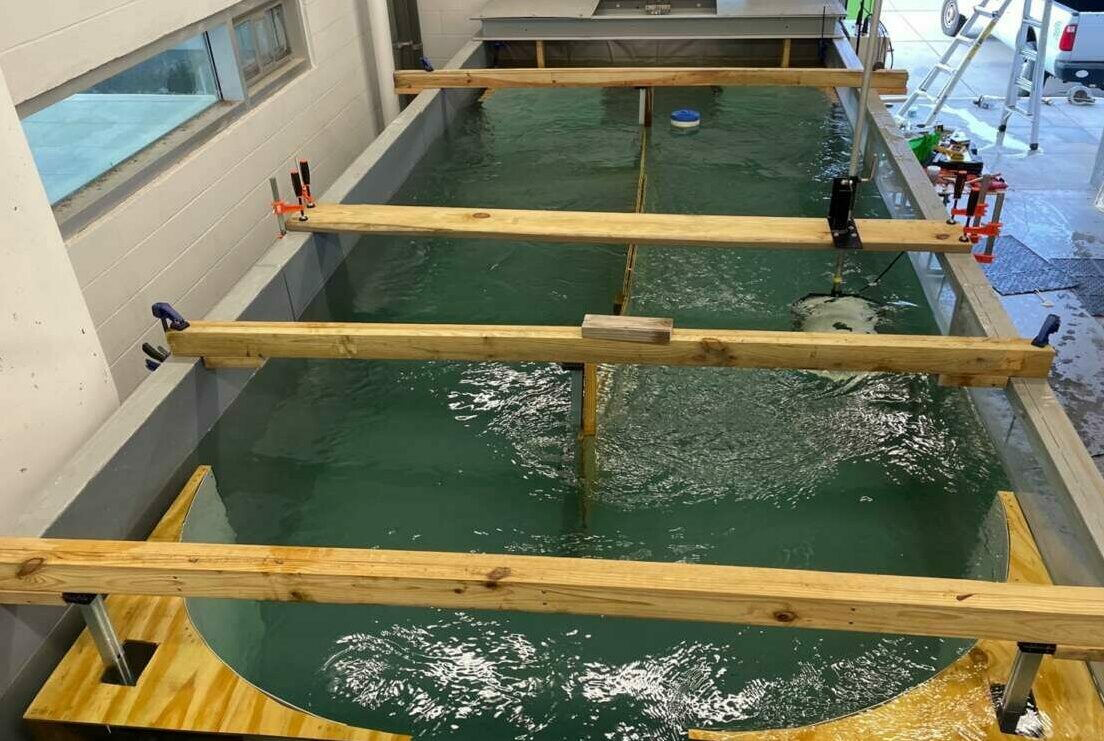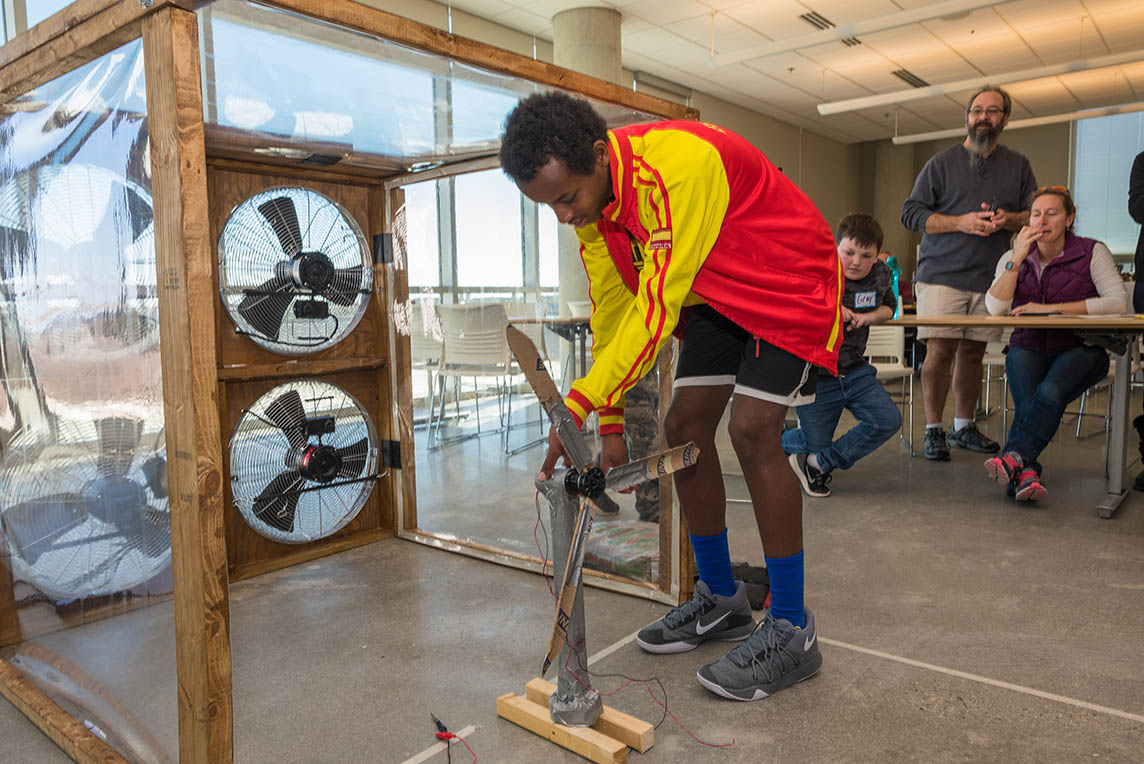NC Renewable Energy Challenge
2024 North Carolina Renewable Energy Challenge
March 23, 2024
We have reached our 25-team capacity. Registration for the 2024 NC Renewable Energy Challenge is now closed. Please check back soon for details regarding our 2025 event.
With funding from the North Carolina Renewable Ocean Energy Program and in partnership with KidWind and Jennette’s Pier, the Coastal Studies Institute (CSI) hosts the day-long North Carolina Renewable Energy Challenge annually on the ECU Outer Banks Campus in Wanchese. Competing students must engineer an alternative energy device and compete against each other to create the most efficient design. The challenge strives to increase student interest in green technology and promote innovation, and it fosters 21st-century skills that better prepare students for the growing renewable energy industry.
This year’s event will include wind and underwater turbine competitions with upper elementary & middle (grades 4-8), and high school (grades 9-12) divisions for each. The goal of the competition is to increase engineering solutions for the alternative energies available in North Carolina. There is funding available for basic competition materials and for travel to CSI. If teams wish to have funding for either, please contact Parker Murphy and John McCord. Finally, an outdoor lunch will be provided for all participants.
The winning teams will receive cash prizes, and the top teams* in each wind division will be invited to the World KidWind competition hosted in Minneapolis, MN, on May 5-8, 2024.
*New in 2024, wind divisions with less than 5 teams participating, will receive one Worlds invitation for the top-performing team. Divisions with more than 5 teams participating, will receive 2 invitations to Worlds.
Interested in learning more about the Challenge before forming a team? Watch the videos below!
A brief presentation for teachers, parents, and students interested in competing in the 2024 North Carolina Renewable Energy Challenge.
A recap of the first-ever NC Renewable Energy Challenge including team and organizer interviews.
Additional Information & Rulebooks

Note: The Wind Profile Form is part of the required documentation for the wind divisions. Access the form HERE; then print, complete, and bring to the Challenge.

Note: The 2024 Ocean Currents rulebook is coming soon. In the meantime, please use the 2023 guidelines as we do not expect any significant changes.



 Based at the Coastal Studies Institute (CSI), the North Carolina Renewable Ocean Energy Program (NCROEP) advances inter-disciplinary marine energy solutions across UNC System partner colleges of engineering at NC State University, UNC Charlotte, and NC A&T University. Click on the links below for more information.
Based at the Coastal Studies Institute (CSI), the North Carolina Renewable Ocean Energy Program (NCROEP) advances inter-disciplinary marine energy solutions across UNC System partner colleges of engineering at NC State University, UNC Charlotte, and NC A&T University. Click on the links below for more information. ECU's Integrated Coastal Programs (ECU ICP) is a leader in coastal and marine research, education, and engagement. ECU ICP includes the Coastal Studies Institute, ECU's Department of Coastal Studies, and ECU Diving and Water Safety.
ECU's Integrated Coastal Programs (ECU ICP) is a leader in coastal and marine research, education, and engagement. ECU ICP includes the Coastal Studies Institute, ECU's Department of Coastal Studies, and ECU Diving and Water Safety. The ECU Outer Banks campus is home to the Coastal Studies Institute.
The ECU Outer Banks campus is home to the Coastal Studies Institute.

